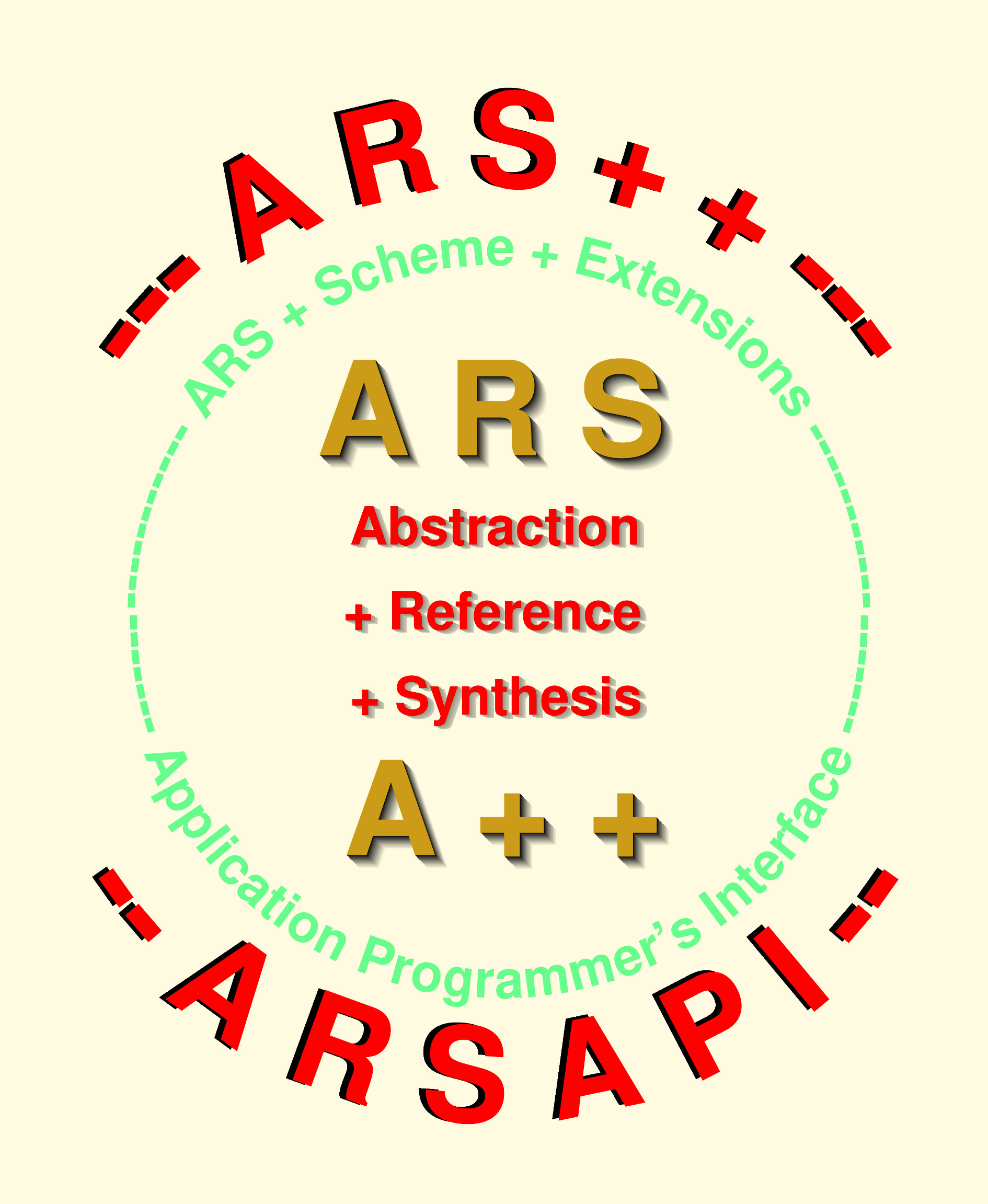

|
Lambda Bound |
A++ |
Book on A++ (available in English now!) |
Lambda Calculus & A++ | ARS++ | ARSAPI | Book on ARS | Demo Program | Download | Contact | Links |
| Other languages: Deutsch |
|
ARS Based Programming is built on three principles: Abstraction, Reference and Synthesis (ARS) which are derived from the Lambda Calculus. This approach to programming is covered in detail in the book `Programmierung pur' (`Undiluted Programming') which has been published in April 2003 by the S.Toeche-Mittler Verlag in Darmstadt, Germany.
This site introduces ARS Based Programming and three tools intended to help learning and applying this approach:
A++ standing for `abstraction plus reference plus synthesis' is used as a name for the smallest programming language in the world that is built on ARS. It's definition follows below and more detailed information is available in the description of 'Programmierung pur' here
ARS is an abstraction from the Lambda Calculus, taking its three basic operations, and giving them a more general meaning. Whereas the Lambda Calculus gives functional programming its theoretical foundation, ARS is capable to provide a theoretical base for all three major programming paradigms, i.e. functional, object oriented and imperative programming.
ARS is a generalized form of the basic operations of the Lambda Calculus in that respect, that the definition of abstraction retains the full meaning of the word (`give something a name') and that all three operations can be applied anywhere in a program without restrictions. The following definitions in EBNF notation define A++ as a programming language in contrast to the Lambda Calculus.
For further details on A++ see description of 'Programmierung pur'
on this site or on the
official A++ web-site.
EBNF Notation:
The generalizations of the Lambda Calculus are threefold:
| |||||||||||||||||||||||||||||||||||||||||||||||||||
| Basic Principles of Programming --- Programming Paradigms --- General Programming Patterns |
|
|
|
The documentation of this site is released under the terms of the GNU Free Documentation License. More details on the copyright license are given here. |